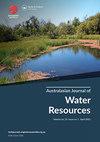为什么我们不同意墨累-达令盆地计划:水改革、环境知识和科学政策决策背景
IF 2.2
Q2 WATER RESOURCES
引用次数: 42
摘要
科学与政策之间的相互作用所产生的叙述为理解复杂的环境问题提供了共同的语言。我们探讨了关于一项主要环境政策——墨累-达令盆地计划的争论,该计划旨在重新分配灌溉用水以恢复澳大利亚东南部的环境。我们研究了科学知识和决策在科学-政策界面的三个领域:(1)水会计和可用性;(2)生态变化的观点;(3)信任和环境水管理的问题。科学家、官僚和公众之间的接触和沟通构成了理解争论的基础:关于不同的价值观、对科学家所能提供的东西的期望、对风险和不确定性的看法、对相互冲突的信息的解释以及经济发展与保护。《流域计划》是由没有考虑到这种差异的体制程序形成的,通过排除不符合决策者的世界观,无意中促进了争论。我们考虑如何通过改变设定决策背景的价值观、规则和知识来重新构建盆地计划。这些变化使盆地计划从一个待解决的问题重新概念化为一个可以调动具有不同观点的代理人的想象力参与的想法。本文章由计算机程序翻译,如有差异,请以英文原文为准。
Why we disagree about the Murray–Darling Basin Plan: water reform, environmental knowledge and the science-policy decision context
ABSTRACT Narratives emerging from the interaction between science and policy set the common language for understanding complex environmental issues. We explore discourses of contestation over a major environmental policy, the Murray–Darling Basin Plan, intended to re-allocate irrigation water to restore the environment in south-eastern Australia. We examine three areas of scientific knowledge and decision-making at the science-policy interface: (1) water accounting and availability; (2) perspectives on ecological change and (3) issues of trust and the management of environmental water. Engagement and communication between scientists, bureaucrats and the public forms the basis for understanding contestation: over different sets of values, expectations of what scientists can deliver, perceptions of risk and uncertainty, interpretation of conflicting messages and economic development versus conservation. The Basin Plan was shaped by institutional processes not designed to account for such differences and has inadvertently promoted contestation through exclusion of world views that do not fit those of the decision makers. We consider how the Basin Plan can be re-framed by changing the values, rules and knowledge that set the decision context. These changes enable the Basin Plan to be re-conceptualised from a problem to be solved to an idea that can mobilise imaginative engagement by agents with diverse perspectives.
求助全文
通过发布文献求助,成功后即可免费获取论文全文。
去求助
来源期刊

Australasian Journal of Water Resources
WATER RESOURCES-
CiteScore
5.10
自引率
21.90%
发文量
25
期刊介绍:
The Australasian Journal of Water Resources ( AJWR) is a multi-disciplinary regional journal dedicated to scholarship, professional practice and discussion on water resources planning, management and policy. Its primary geographic focus is on Australia, New Zealand and the Pacific Islands. Papers from outside this region will also be welcomed if they contribute to an understanding of water resources issues in the region. Such contributions could be due to innovations applicable to the Australasian water community, or where clear linkages between studies in other parts of the world are linked to important issues or water planning, management, development and policy challenges in Australasia. These could include papers on global issues where Australasian impacts are clearly identified.
 求助内容:
求助内容: 应助结果提醒方式:
应助结果提醒方式:


